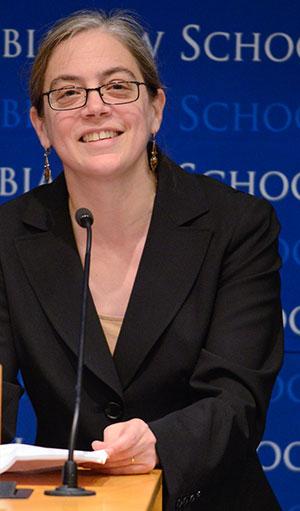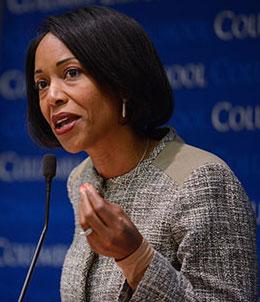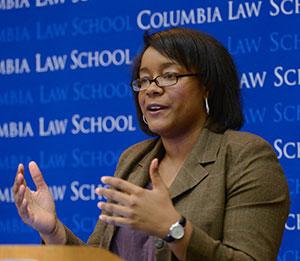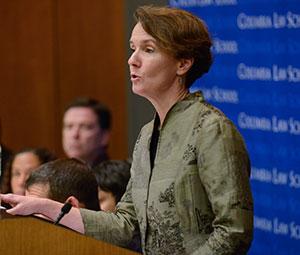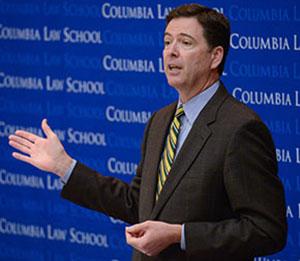Center for Constitutional Governances Inaugural Conference Engages Experts on Policy Issues
New York, April 26, 2013—A distinguished group of scholars and current and former government officials discussed and debated the principal legal and policy challenges facing the nation at the inaugural conference of Columbia Law School’s Center for Constitutional Governance. Created in 2012, the Center is devoted to the study of the government’s structure, relationships, and powers and seeks to bring together government officials, legal academics, and others to engage on governance issues.
| Professor Gillian E. Metzger '95, co-director of the Center for Constitutional Governance |
The April 12 conference, “The Next Four Years: Major Issues in Constitutional Governance,” focused on the contested policy issues facing the Obama administration and the nation: fiscal and budget challenges, domestic policy concerns, national security and foreign policy, and campaign finance and voting rights.
Professor Gillian E. Metzger ’95, the Center’s co-director and a vice dean of the Law School, described the conference as providing a unique opportunity for open and interactive discussion of key governance issues among a wide range of government leaders, private practitioners, nonprofit advocates, and legal scholars. The conference was especially timely, as the contours of federal, state, and private sector authority, and the role of the government itself, are at the forefront of national debate.
| Maya Rockeymoore, president and chief executive officer of Global Policy Solutions |
| Danielle Gray, cabinet secretary and assistant to President Obama |
| Sarah H. Cleveland, the Louis Henkin Professor in Human and Constitutional Rights and faculty co-director of the Human Rights Institute |
| James B. Comey, senior research scholar and Hertog Fellow in National Security Law at Columbia Law School |
